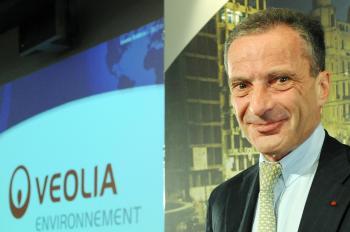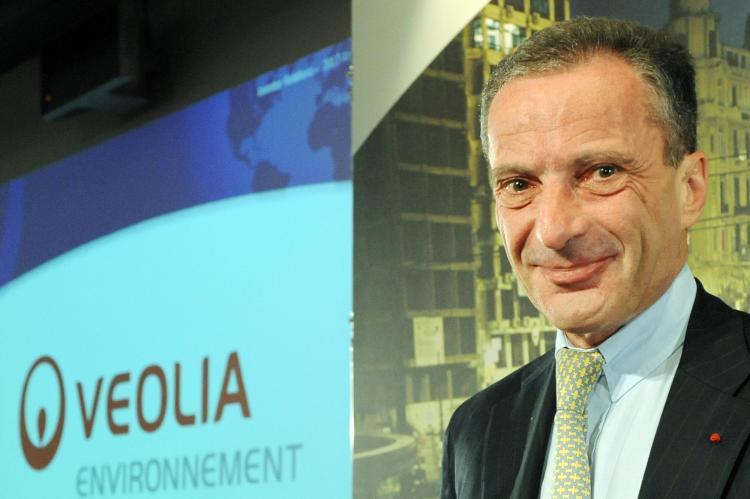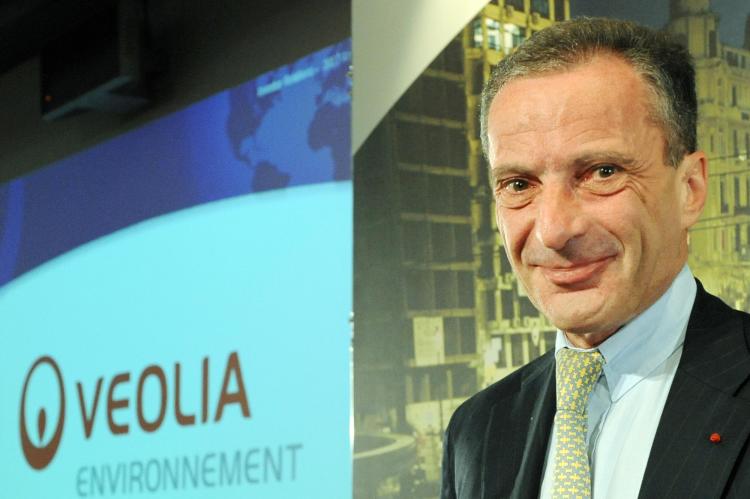PARIS—Henri Proglio, the recently appointed CEO of French Electricity Giant EDF is under heavy political and media pressure over the terms of his contract and his involvement in the management of both state-owned EDF and environment leader firm Veolia. Faced with the media turmoil, French government officials, who first supported Proglio, are now asking him to quickly make a choice between the two companies.
Concern had then been raised, as he had just been appointed to head EDF, that a conflict of interest was possible between the state-owned electricity firm and Veolia, the privately held global company dedicated to water and waste recycling.
In an attempt to calm things down, earlier this month, the new EDF top executive had already renounced his 450,000 euros (US$600,000) salary from Veolia. That salary was to be paid in addition to 1.6 million euros (US$2 million) he already received from EDF. At a time when the French government was supporting him against the press and left-wing opposition, Proglio had hoped this move would end the criticism.
This was, however, not enough to calm the storm; and government officials one by one made a 180 degree turn in their public stance on the issue. Some who had remained silent also started to express their views. “Let’s say that this executive has stock-options in the company [Veolia] and that, maybe, he goes and sells some to the other one (EDF) ... that might be a problem,” explained High Commissioner Martin Hirsch to Canal Plus TV station. In October last year, Veolia had indeed indicated that Proglio would keep his stock-options.
Things got worse for Proglio on Jan. 25 when Economy Minister Christine Lagarde and Solidarity High Commissioner Martin Hirsch distanced themselves from him.
Hirsch a former NGO activist stated, “I think I’m perfectly loyal [to the government] when showing why this can have been a mistake,” he continued. “We can ask [French people] to make additional efforts only if the bigger ones proportionally make even more efforts themselves … otherwise there is no credibility.”
Economy Minister Christine Lagarde herself echoed this position when she expressed that such a situation should not last forever. “One cannot participate in two companies with the same intensity,” she said.
And, finally, President Sarkozy himself stated during a prime-time TV interview on Jan. 25 that Proglio would only be authorized to wear two hats during a transitional period, the length of which he did not announce.
Proglio, however, still refuses to make a choice between his positions of CEO at EDF and non-executive president at Veolia.
Parliament member Pierre Moscovici on the side of the left-wing opposition, the Socialist Party, indicated to AFP that Proglio was behaving in an unethical way. “One cannot head both a public company like EDF, a job that you have to do full time, and a private firm like Veolia, with possible conflicts of interest. This has to stop now.”
Moscovici pointed out that another matter of controversy is the 13 million euros($US18.2 million) pension provisioned by EDF for Proglio’s retirement. “This is part of the behavior that, in today’s financial capitalism, is extremely shocking for people,” he said.
Presidential Party spokesman Frederic Lefebvre, interviewed on France 2 television, tried to end the debate: “Lets leave him [Henri Proglio] in peace, he is a great industry captain. The matter is over, and only the Socialist Party is trying to sustain it for electoral purposes.”
With the upcoming March regional elections, Proglio’s case could indeed weigh heavy in the ballots. This partly explains the move by Nicolas Sarkozy and his government against Proglio, who initially had claimed to retain his involvement in Veolia a condition to accept the position offered to him at EDF.
Concern had then been raised, as he had just been appointed to head EDF, that a conflict of interest was possible between the state-owned electricity firm and Veolia, the privately held global company dedicated to water and waste recycling.
In an attempt to calm things down, earlier this month, the new EDF top executive had already renounced his 450,000 euros (US$600,000) salary from Veolia. That salary was to be paid in addition to 1.6 million euros (US$2 million) he already received from EDF. At a time when the French government was supporting him against the press and left-wing opposition, Proglio had hoped this move would end the criticism.
This was, however, not enough to calm the storm; and government officials one by one made a 180 degree turn in their public stance on the issue. Some who had remained silent also started to express their views. “Let’s say that this executive has stock-options in the company [Veolia] and that, maybe, he goes and sells some to the other one (EDF) ... that might be a problem,” explained High Commissioner Martin Hirsch to Canal Plus TV station. In October last year, Veolia had indeed indicated that Proglio would keep his stock-options.
Things got worse for Proglio on Jan. 25 when Economy Minister Christine Lagarde and Solidarity High Commissioner Martin Hirsch distanced themselves from him.
Hirsch a former NGO activist stated, “I think I’m perfectly loyal [to the government] when showing why this can have been a mistake,” he continued. “We can ask [French people] to make additional efforts only if the bigger ones proportionally make even more efforts themselves … otherwise there is no credibility.”
Economy Minister Christine Lagarde herself echoed this position when she expressed that such a situation should not last forever. “One cannot participate in two companies with the same intensity,” she said.
And, finally, President Sarkozy himself stated during a prime-time TV interview on Jan. 25 that Proglio would only be authorized to wear two hats during a transitional period, the length of which he did not announce.
Proglio, however, still refuses to make a choice between his positions of CEO at EDF and non-executive president at Veolia.
Parliament member Pierre Moscovici on the side of the left-wing opposition, the Socialist Party, indicated to AFP that Proglio was behaving in an unethical way. “One cannot head both a public company like EDF, a job that you have to do full time, and a private firm like Veolia, with possible conflicts of interest. This has to stop now.”
Moscovici pointed out that another matter of controversy is the 13 million euros($US18.2 million) pension provisioned by EDF for Proglio’s retirement. “This is part of the behavior that, in today’s financial capitalism, is extremely shocking for people,” he said.
Presidential Party spokesman Frederic Lefebvre, interviewed on France 2 television, tried to end the debate: “Lets leave him [Henri Proglio] in peace, he is a great industry captain. The matter is over, and only the Socialist Party is trying to sustain it for electoral purposes.”
With the upcoming March regional elections, Proglio’s case could indeed weigh heavy in the ballots. This partly explains the move by Nicolas Sarkozy and his government against Proglio, who initially had claimed to retain his involvement in Veolia a condition to accept the position offered to him at EDF.







